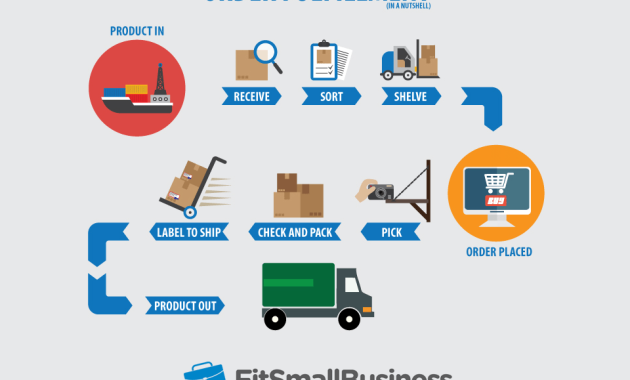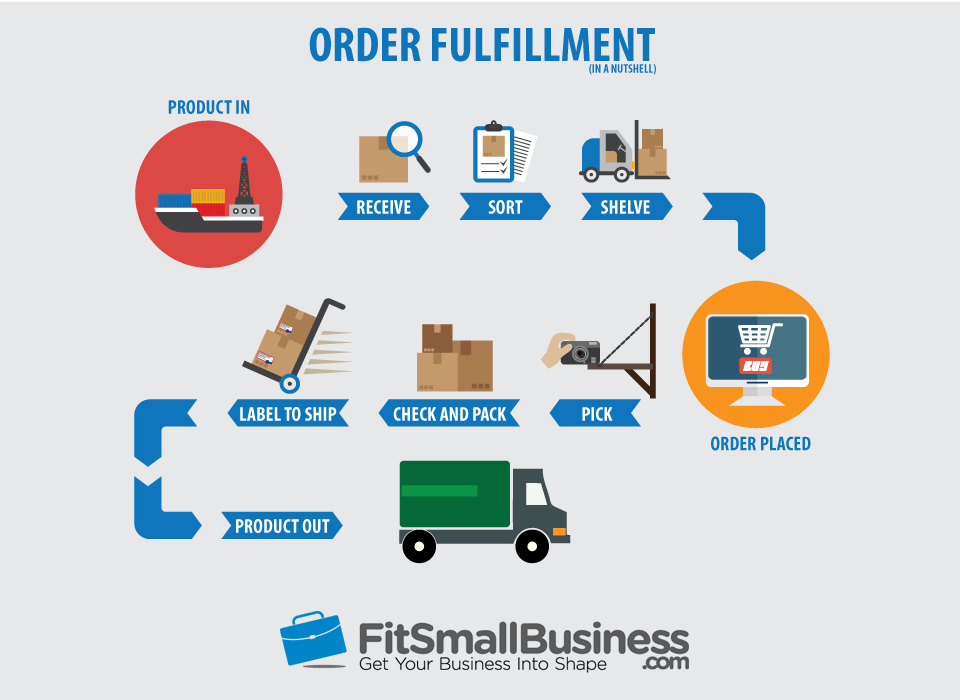
Unlocking Efficiency: Business Intelligence Tools Revolutionizing Order Fulfillment
In today’s fast-paced business environment, the ability to fulfill orders efficiently and accurately is paramount. Companies are constantly seeking ways to optimize their operations, reduce costs, and enhance customer satisfaction. One of the most effective strategies involves leveraging business intelligence (BI) tools. These tools provide valuable insights into order fulfillment processes, enabling data-driven decision-making and significant improvements. This article explores how business intelligence tools are transforming the landscape of order fulfillment.
The Challenges of Modern Order Fulfillment
Order fulfillment is a complex process, encompassing everything from receiving an order to delivering it to the customer. Several challenges can hinder efficiency and profitability. These include:
- Inventory Management: Maintaining the right amount of inventory is crucial. Too much inventory ties up capital, while too little can lead to stockouts and lost sales.
- Warehouse Operations: Efficiently picking, packing, and shipping orders requires streamlined processes and optimized warehouse layouts.
- Supply Chain Disruptions: Unexpected events, such as natural disasters or supplier delays, can disrupt the flow of goods.
- Shipping Costs: Balancing shipping costs with customer expectations for fast delivery is a constant challenge.
- Returns Management: Handling returns efficiently is essential for customer satisfaction and cost control.
These challenges can result in increased costs, delays, and dissatisfied customers. However, business intelligence tools offer a powerful solution to these problems.
How Business Intelligence Tools Improve Order Fulfillment
Business intelligence tools analyze data from various sources, providing a comprehensive view of the order fulfillment process. This data-driven approach empowers businesses to make informed decisions and optimize their operations. Here are some key ways business intelligence tools enhance order fulfillment:
Improved Inventory Management
BI tools can analyze sales data, historical trends, and demand forecasts to optimize inventory levels. This helps businesses avoid stockouts and reduce excess inventory. Predictive analytics can also be used to anticipate future demand and proactively adjust inventory levels. By analyzing data, business intelligence tools provide insights to forecast demand.
Optimized Warehouse Operations
BI tools can analyze warehouse operations data, such as picking times, packing efficiency, and shipping routes, to identify bottlenecks and areas for improvement. This data can be used to optimize warehouse layouts, streamline processes, and reduce labor costs. Data visualization tools within business intelligence tools can highlight these areas.
Enhanced Supply Chain Visibility
BI tools can provide real-time visibility into the supply chain, allowing businesses to track the movement of goods from suppliers to customers. This visibility helps identify potential disruptions and proactively mitigate risks. Furthermore, this allows businesses to respond quickly to unforeseen events. This improves supply chain agility.
Reduced Shipping Costs
BI tools can analyze shipping data, such as carrier rates, shipping times, and delivery performance, to optimize shipping strategies and reduce costs. Businesses can identify the most cost-effective shipping options for each order. They can also negotiate better rates with carriers. Business intelligence tools help find the best shipping options.
Streamlined Returns Management
BI tools can analyze returns data to identify patterns and trends, enabling businesses to streamline the returns process and reduce costs. This includes identifying common reasons for returns and implementing strategies to prevent them. This also improves customer satisfaction. Business intelligence tools help manage returns effectively.
Key Features of Business Intelligence Tools for Order Fulfillment
Several features are crucial when selecting business intelligence tools for order fulfillment. These features enable businesses to gain valuable insights and make data-driven decisions. Consider these key features:
- Data Integration: The ability to integrate data from various sources, such as ERP systems, CRM systems, and warehouse management systems, is essential.
- Data Visualization: Powerful data visualization tools are needed to present data in an easy-to-understand format. This facilitates quick identification of trends and patterns.
- Reporting and Dashboards: Customizable reports and dashboards provide key performance indicators (KPIs) at a glance.
- Predictive Analytics: Predictive analytics capabilities enable businesses to forecast future demand and anticipate potential issues.
- Real-time Data: Access to real-time data allows businesses to make timely decisions and respond quickly to changes.
- User-Friendly Interface: The tool should have an intuitive and easy-to-use interface to ensure widespread adoption.
Implementing Business Intelligence Tools for Order Fulfillment
Implementing business intelligence tools effectively requires a strategic approach. Here’s a step-by-step guide:
- Define Objectives: Clearly define the goals and objectives for using business intelligence tools.
- Identify Data Sources: Determine the data sources that are relevant to order fulfillment.
- Select the Right Tools: Choose business intelligence tools that meet your specific needs and budget.
- Implement the Tools: Implement the tools and integrate them with existing systems.
- Train Users: Train employees on how to use the tools effectively.
- Monitor and Analyze: Continuously monitor performance and analyze the data to identify areas for improvement.
Benefits of Using Business Intelligence Tools
The benefits of using business intelligence tools in order fulfillment are numerous and impactful. These tools offer a competitive advantage. They also drive operational efficiency. The benefits include:
- Increased Efficiency: Streamlined processes and optimized operations.
- Reduced Costs: Lower inventory costs, shipping costs, and labor costs.
- Improved Customer Satisfaction: Faster delivery times and fewer errors.
- Enhanced Decision-Making: Data-driven insights that enable better decisions.
- Greater Agility: The ability to respond quickly to changes in demand and supply chain disruptions.
- Improved Inventory Accuracy: Better control and visibility of inventory levels.
Examples of Business Intelligence Tools
Several business intelligence tools are available in the market. Each offers unique features and capabilities. Some popular options include:
- Tableau: Known for its powerful data visualization capabilities.
- Microsoft Power BI: A versatile tool with a wide range of features.
- Qlik Sense: Offers associative data modeling and real-time analytics.
- Looker: Focuses on data exploration and collaboration.
- Sisense: Provides a comprehensive platform for data analytics and BI.
The best tool depends on the specific needs and requirements of each business. Choosing the right tool is crucial.
Future Trends in Business Intelligence for Order Fulfillment
The future of business intelligence tools in order fulfillment is promising. Several trends are emerging that will further enhance the capabilities of these tools:
- Artificial Intelligence (AI) and Machine Learning (ML): AI and ML are being used to automate tasks, predict demand, and optimize processes.
- Cloud-Based Solutions: Cloud-based business intelligence tools offer greater flexibility and scalability.
- Real-Time Analytics: Real-time data and analytics will become even more important.
- Integration with IoT Devices: Integration with IoT devices will provide more data and insights.
These trends will continue to shape the future of business intelligence tools. This will further enhance order fulfillment capabilities. Businesses must stay informed about these trends.
Conclusion
Business intelligence tools are transforming the way businesses approach order fulfillment. By leveraging data-driven insights, companies can optimize their operations, reduce costs, and improve customer satisfaction. As technology continues to evolve, business intelligence tools will play an increasingly important role in the success of businesses. Investing in these tools is a strategic move. It will help businesses thrive in a competitive market. Businesses must embrace business intelligence tools to remain competitive.
[See also: Related Article Titles]

